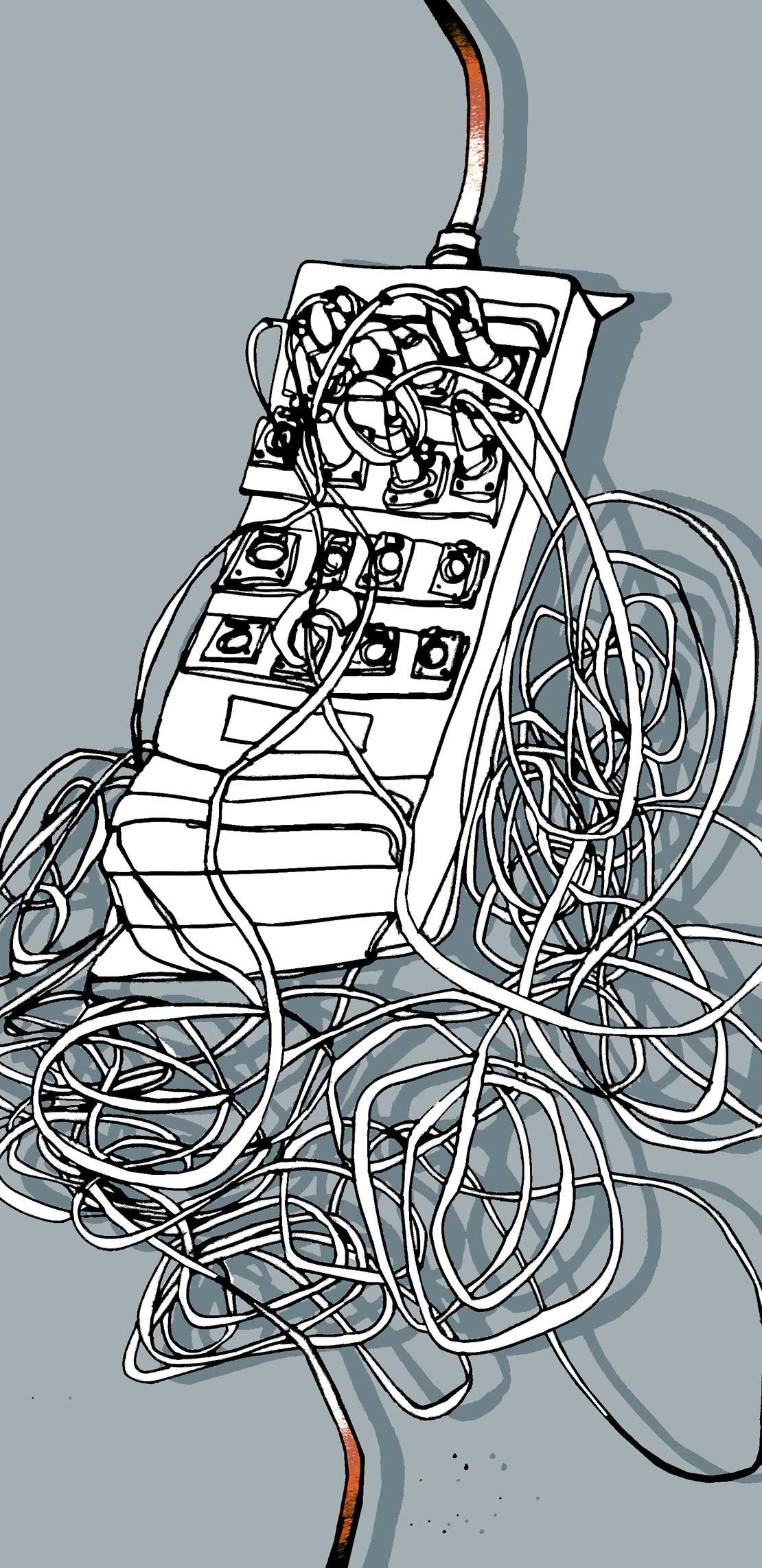For mixing and critical listening, my favorite headphones in the studio are Shure SRH1840 (Tape Op #89), Shure SRH940 (#85), and Audio-Technica ATH-M50 (#63). As I've stated in my previous reviews, the open-backed Shure SRH1840 offer the clearest picture out of these three, with the least amount of distortion in the mids and highs. The SRH940 sound similar to the SRH1840, but being close-backed, there's more usable bass, while the mids and highs aren't quite as pristine. The ATH-M50 exhibit fantastic bass response, and they tend to highlight mud in the low mids as well as sibilance in the highs, but that only encourages me to work harder to get a clearer sound if I use them while mixing. None of my favorites here have a lot of "hype" in their voicings, especially the Shures; they offer smooth, relatively-flat frequency responses. So, what if you want headphones that do add some "excitement" to the sound but don't want the harshness that often comes hand-in-hand with emphasis in the highs? Check out the Shure SRH1440.
Like the $700 SRH1840, the $400 SRH1440 headphones are open-backed, and therefore, they're exceptionally smooth in the mids and highs, without the resonances that oftentimes plague close-backed designs. But unlike the SRH1840, the SRH1440 don't have a flat frequency response. I hear pronounced highs, with a slight peak centered at 3.4 kHz, a smooth fall down to 5.8 kHz, followed by a rise that adds emphasis up to 13 kHz. What's interesting about this curve is that it does accentuate high-frequency energy, but the area of the spectrum where sibilance can make me cringe most is actually attenuated, so the highs still sound smooth. More importantly, I hear significantly less harmonic distortion here than I can with closed-back headphones. Because the highs are pushed "forward" on the SRH1440 without additional distortion, any processing of the highs - EQ, reverb, compression - becomes easier to do with these headphones on, especially when I'm tweaking the harmonic content, timbre, or the elusive "air" of a signal.
On the other end of the spectrum, the bass response of the SRH1440 drops quickly from 64 Hz down. At 40 Hz, harmonic distortion just overpasses the fundamental, and at 34 Hz, there's much more distortion than signal. Fundamentals pretty much disappear below 27 Hz. All this means that the SRH1440 aren't the best choice for thumping bass. On the other hand, bass and lower mids from 64 Hz on up are smooth and flat, with very little resonance and distortion.
Keep in mind that my head, ear, and ear-canal shapes are different than yours. In other words, the chambers of sound between headphone drivers and ears will differ between you and me. Therefore, your headphone experiences will not match mine exactly. But with that disclaimer aside, I believe that the SRH1440 are exceptional headphones; they sound smooth and natural while giving prominence to the highs. If you desire headphones that push the highs forward, definitely give the SRH1440 an audition.
The SRH1440 come well accessorized. Included are two sets of high-quality cables; two sets of super-comfy, velour-covered ear pads; and a zippered, semi-rigid storage case with cutouts and compartments for everything.
($399.99 street; www.shure.com) -AH




_disp_horizontal_bw.jpg)